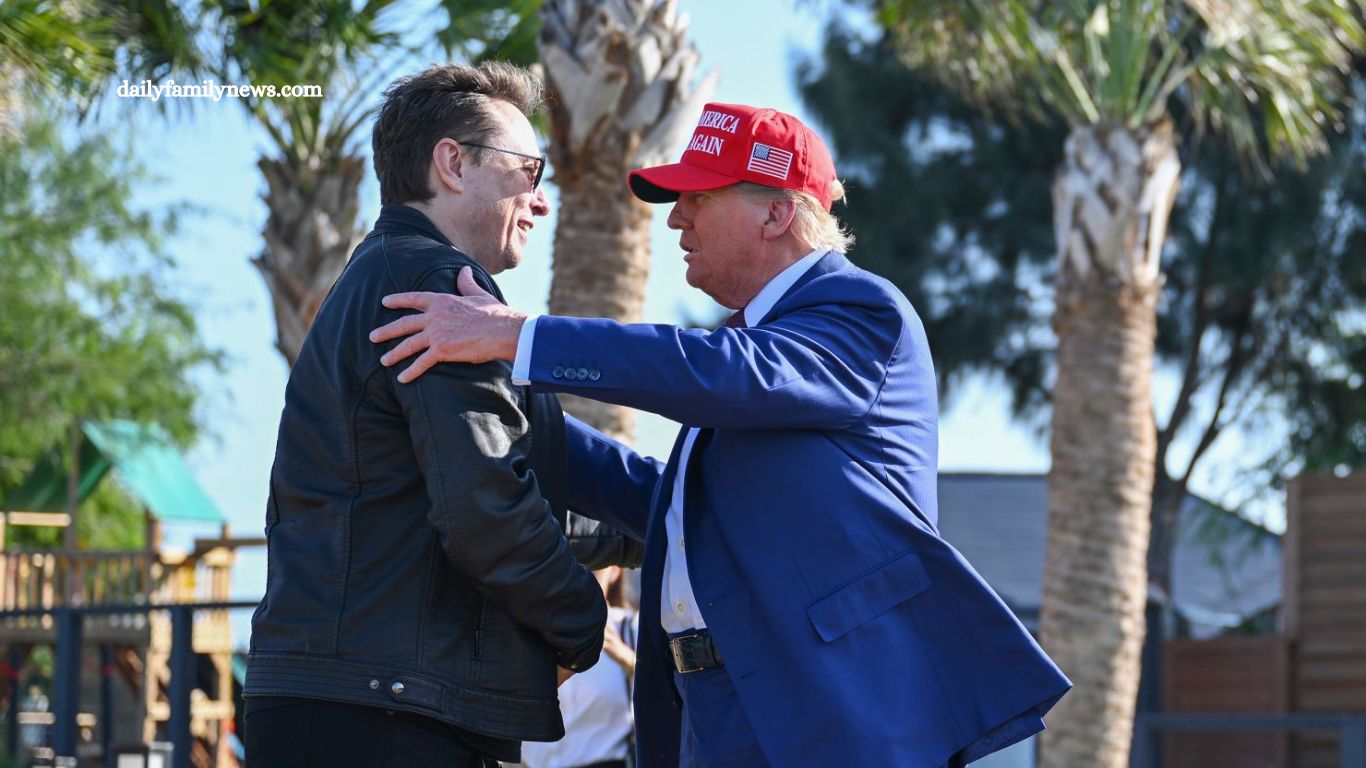In the escalating feud between former President Donald Trump and tech billionaire Elon Musk, one threat stood out among the rest: Trump’s suggestion that, if reelected, he might cancel federal contracts with Musk’s companies — a veiled reference to SpaceX, the aerospace giant that plays a critical role in U.S. national security.
Read More: The Manosphere Divided Over Israel’s Strike on Iran
SpaceX’s $21 Billion Government Lifeline
SpaceX has secured at least $21 billion in government contracts to date, with roughly $13 billion still outstanding. That includes deals with the Pentagon, NASA, and the National Reconnaissance Office. While Trump’s rhetoric may signal political retribution, unilaterally canceling these agreements would likely lead to prolonged legal challenges and institutional pushback.
“Elon’s antics are threatening to rewind the tape,” warned Kimberly Siversen Burke, director of government affairs at Quilty Space. She believes the damage from politicizing the relationship between government and commercial space providers could extend far beyond Musk.
Too Big to Drop
The sheer scale and performance of SpaceX make it a difficult partner to walk away from. In 2024, the company’s 134 rocket launches accounted for 83% of all satellites placed in orbit globally. Its workhorse Falcon 9 rocket — partially reusable and consistently reliable — has outpaced every competitor.
United Launch Alliance (ULA), a joint venture between Boeing and Lockheed Martin, remains SpaceX’s primary rival for national security launches. But ULA has suffered years of delays with its Vulcan rocket. Blue Origin, owned by Jeff Bezos, recently achieved its first successful New Glenn launch but still lags far behind SpaceX in capacity.
“There’s no replacing SpaceX,” said Todd Harrison, a space and defense analyst at the American Enterprise Institute. “You just do not have the capacity in our other launch options.”
SpaceX’s Expanding Role in U.S. Defense
SpaceX’s significance goes beyond launch capacity. The company is now a key builder of national security satellites. The National Reconnaissance Office is relying on SpaceX’s Starshield platform to establish a multibillion-dollar constellation of low-Earth orbit spy satellites.
NASA, meanwhile, depends on SpaceX for both cargo and crew transport to the International Space Station — a reliance deepened by Boeing’s ongoing technical struggles with its Starliner spacecraft.
Areas of Vulnerability
Still, some contracts could be at risk. Burke notes that smaller-dollar programs, particularly those in early development phases, may be more susceptible to political interference. For example, SpaceX has secured approximately $140 million to support an Air Force initiative testing how commercial satellite networks can integrate into battlefield communications — a contract that could be scaled back or redirected without major disruption.
Another potential target is SpaceX’s $537 million Starlink contract supporting Ukrainian military communications. Cutting or reducing that agreement would not only hurt Musk, but also jeopardize a vital link for Ukraine.
Subtler Paths to Retaliation
Rather than scrapping existing contracts, a future Trump administration could steer new opportunities away from SpaceX. The Commerce Department, for instance, might reverse its March decision to expand eligibility for a $42 billion rural broadband program to include satellite providers like Starlink. So far, that program has focused exclusively on fiber-optic networks.
NASA’s long-term goals could also shift. Trump has previously expressed support for a crewed Mars mission, one of Musk’s central ambitions. But a change in administration priorities could pull that support — and funding — back.
“Where Trump can single-handedly harm SpaceX in a significant way is redirecting the mission goals for NASA,” Harrison noted.
Rethinking Reliance
Given Musk’s increasingly volatile public behavior, some policymakers may already be considering how to diversify away from SpaceX. But doing so won’t be easy — or fast. For now, the U.S. government appears deeply tethered to Musk’s launchpads, satellites, and ambitions.
And despite the political noise, unwinding that relationship would come at significant cost — to both sides.
Frequently Asked Questions
Why did Trump threaten to cancel SpaceX contracts?
Former President Donald Trump made veiled threats to cancel federal contracts with Elon Musk’s companies amid a public feud. The move appears politically motivated, but canceling such contracts would face significant legal and institutional challenges.
How much money has SpaceX received from the U.S. government?
SpaceX has been awarded at least $21 billion in U.S. government contracts, with $13 billion still outstanding. These deals span across the Pentagon, NASA, and national intelligence agencies.
Can a future Trump administration legally cancel SpaceX contracts?
Not easily. Most major contracts are binding and could only be canceled for cause. Any attempt to terminate them out of political spite would likely lead to lengthy legal battles.
Is the government too reliant on SpaceX?
In many areas, yes. SpaceX is the dominant provider of satellite launches and a critical supplier of national security and space exploration services. Experts believe there’s currently no viable alternative with equal capacity.
What are the broader risks of politicizing space contracts?
Experts warn that political attacks on Musk and SpaceX could erode confidence in commercial space partnerships more broadly, setting back years of effort to integrate private innovation into U.S. national security and space policy.
Conclusion
SpaceX has become an indispensable partner to the U.S. government — not just for launching satellites, but for enabling critical national security, intelligence, and scientific missions. While political tensions between Elon Musk and Donald Trump may spark threats to sever that relationship, the reality is far more complex. Legal constraints, operational dependency, and the lack of scalable alternatives make cutting ties with SpaceX an impractical — and potentially damaging — move.
However, targeted efforts to reduce future reliance, shift funding priorities, or exclude SpaceX from emerging programs remain within reach for a future administration. In the long term, these political dynamics underscore a larger question facing U.S. space policy: how to balance the innovation of commercial partners with the strategic stability of national interests.
